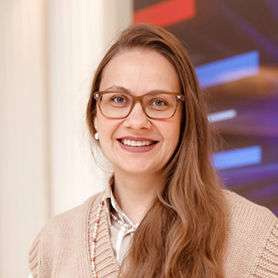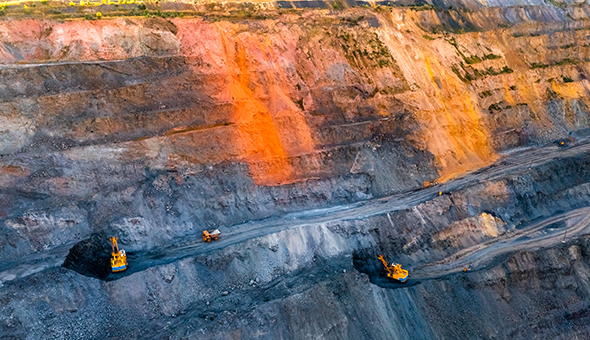Anastasia Savelieva: Empowering Employees to Drive Sustainability
A desire to change the world for the better saw Anastasia embark on a career in education and social design, followed by roles in charity and CSR. Now, as Head of External Social Programs and Non-Financial Reporting at Metalloinvest Management Company in Russia, Anastasia talks to dss+ about how a focus on community values, training and a top ten vote keep her motivated.


Anastasia Savelieva
Head of External Social Programs and Non-Financial Reporting at Metalloinvest Management Company, Russia
Q.
Sustainability is a key priority for you. How has this vision developed and what steps have been taken to improve?
Historically, as the largest city employers, we have always done our best to support the local population in the territories in which we were present. In 2010 the company adopted a CSR strategy, and work began on a multi-step programme. The first step was large-scale support of the population and local communities: improving the residents’ quality of life and well-being. The next step was to develop and prepare environmental, social and governance (ESG) reporting, which imposed certain obligations and required us to act in several areas at once. In 2018, we began participating in the international EcoVadis ratings, which evaluated our economic, social and environmental efforts. In 2021, the company presented a new business strategy that emphasises sustainability as a key priority. We launched two special courses on sustainability and the environment and trained about 6,000 employees to improve awareness of issues and contribute to sustainable development. In addition, this year, we improved our international ranking and were among the best companies in the world in sustainable development.
"It’s all about giving employees the knowledge and tools to take responsibility for driving the sustainability agenda forward."
Q.
We often talk about changing mindsets and behaviours as an essential factor in developing a sustainable business. What role does education and training play in this vision?
I believe education plays an integral role. It is precisely the task of our training courses to influence value creation so that each company employee “drives” activities that improve socio-economic conditions, the environment and corporate governance on a daily basis. It’s also important to explore different aspects of sustainability. So our Sustainable Development course is designed to reveal the company’s fundamental values and strategies, which are based on a commitment to the principles of sustainable development. Whereas the “Environmental Culture and Ethics” course aims to create a conscious attitude towards environmental issues and helps to learn what measures are being taken globally, nationally and in the company to reduce the burden on the environment and how an employee can participate in this process. It’s all about giving employees the knowledge and tools to take responsibility for driving the sustainability agenda forward. So far, we’ve trained about 6,000 employees to improve sustainability awareness.

"I believe it’s essential to change the safety culture by interacting with managers, creating proper communication with employees and working with their perceptions of safety."
Q.
A good occupational health and safety strategy is vital to building a sustainable business. How is safety culture changing?
In 2019, we changed our approach to pay more attention to incident analysis and create more transparency on health and safety issues, including transforming the entire management system. Priorities include technological safety, improving safety culture, and preventing accidents using digital technology and artificial intelligence. I believe it’s essential to change the safety culture by interacting with managers, creating proper communication with employees and working with their perceptions of safety. We declared 2021 as the year of occupational safety in our company, which has helped underline its importance to us.
Q.
Last year, your company was in the top 7% of the world’s best ESG rated companies by EcoVadis, an independent agency specialising in sustainability ratings. Tell us about the benefits of this achievement.
Based on the environment, labour and human rights, ethics and sustainable procurement, we received our debut score from the Agency in 2018 and improved our performance in 2021. The company scored 65 points in the annual ESG rating, with an industry average of 43 points, achieving an ESG rating that put us in the top 7%. One of the main benefits of top sustainability ratings is attracting green investments, and we were no exception. When Metalloinvest entered into a loan agreement with a bank, our ESG rating was a factor in securing the loan and the interest rate paid. Based on assessment results, the higher the rating the company receives, the higher the amount of credit and the lower the interest on the loan.
"Creating a sustainable and effective business starts by having a clear view of how external factors and the international agenda can make an impact."
Q.
In your opinion, what are the main factors influencing the creation of a sustainable business?
I believe creating a sustainable and effective business starts by having a clear view of how external factors and the international agenda can make an impact. Then there are internal considerations to take into account, such as the company’s employees, particularly the younger generation of workers who have different values and a different perception of the world. The importance companies give to training are also essential, as are the leadership and values that managers transmit across the corporate environment. Finally, it’s necessary to have a robust financial component and competent management in this area to give the best chance of a successful sustainability outcome.